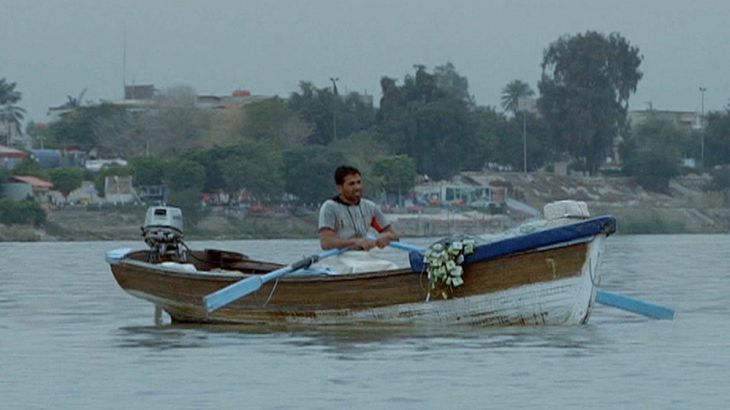
Iraq’s Dying Rivers
War and pollution plague the fertile crescent’s Tigris and Euphrates rivers, leaving fishermen struggling to survive.
Filmmakers: Omayma Naklah and Mohammad Rahahleh
For thousands of years, two famous rivers, the Tigris and Euphrates, made Iraq one of the most fertile regions in the Middle East.
Keep reading
list of 4 itemsPhotos: Heartbreak in Zimbabwe park – Elephants’ desperate hunt for water
Photos: Natural disasters that plagued the world in 2023
‘Everything is dead’: How record drought is wreaking havoc on the Amazon
Often called “the cradle of civilisation”, the first urban settlers grew up on the lands between the two ancient waterways. But today, things are dramatically different, – for the rivers and the people who depend on them.
Iraq’s ancient rivers and water resources have been seriously damaged by wars, economic sanctions, the construction of upstream dams, pollution and a fall in water levels.
The Tigris and Euphrates meet in Basra province, in the south of Iraq, where they form the Shatt al-Arab waterway. Tens of thousands of Iraqis live in marshes, like Abu Haider and his wife who rely almost entirely on fishing to survive.
There aren't any fish in the river. Our nets always come out empty.
“Fishing income isn’t like a regular salary,” explains Abu Haider. “There are days when there are no fish. You spend $17 on petrol and oil but your catch is only worth $8.”
The displacement of over 200,000 Marsh Arabs by former President Saddam Hussein‘s government and the campaign of violence against them, led the international community to condemn it as ethnic cleansing.
The United Nations has described the draining of the marshes as a “tragic human and environmental catastrophe” on par with the deforestation of the Amazon rainforest.
During that time, Abu Haider and his wife were forced to turn to farming but returned when the marshes were reflooded after Saddam Hussein was toppled in 2003.
“We love this area … it’s our home,” says Umm Haider, who’s been her husband’s fishing companion since their union. “These waters are where we live and make a living … We live a hand-to-mouth existence.”
In September 2018, Iraq’s Ministry of Water Resources said the levels and rivers like the Tigris in Baghdad have dropped up to 40 percent in the last 20 years. Partly to blame are dams and reservoirs being built in Turkey to the north that has restricted the flow of water southwards, causing a shrinkage in farmland each year.
“There aren’t any fish in the river. Our nets always come out empty,” laments retired Euphrates fisherman, Karim Kadhem who lives in Nasiriyah city, where people cannot drink the water from the Euphrates because the drop in water level has increased its salinity.
The Shatt al-Arab waterway flows into the Gulf. Increasing pollution and low fish stocks have forced Iraqi fishermen to risk forays into Iranian and Kuwaiti waters.
“Before, we used to sail towards Iran and Kuwait. No one stopped us, but it’s become very restricted,” explains Kamel Khalil, an elderly fisherman from al-Faw, a traditional fishing port community experiencing an exodus of fishing families. “It’s getting harder every year.”
The wrestle for control of the Shatt al-Arab waterway was one of the causes of the long, costly and bitter war between Iraq and Iran throughout most of the 1980s. That border dispute is still not settled. Kuwait and Iraq have also yet to agree on a sea border in negotiations which have been going on since Saddam Hussein’s invasion of Kuwait in 1990. Many fishermen at the docks say Iraqis are viewed with hostility by Iranians and Kuwaitis who are still bitter over their conflicts with Iraq in the 1980s and ’90s.
Today’s crisis means that Iraq, once so abundant in water resources, now imports 60 percent of its fish. But above all, it threatens the roots of Iraq’s identity as the land between the two ancient rivers, the Tigris and Euphrates, on which the country and its people have depended for thousands of years.